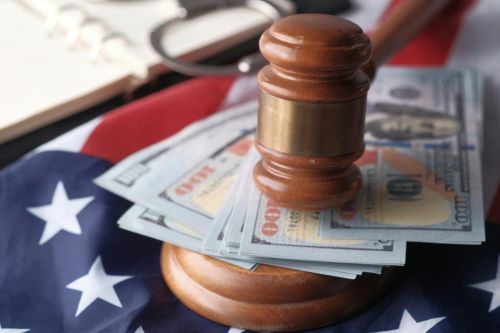



A general reputation of lawyers in the United States is that we are greedy and will lie to make money; the stereotype is an ambulance-chasing attorney making money off an individual’s injury or even the death of a loved one. Driving across this beautiful country, you will see the highways lined with hundreds of billboards advertising for lawyers, trying to be as memorable as possible, and each appearing to outdo the next by how aggressive they are in getting you millions for whatever unfortunate circumstance has befallen you.
Every day in Virginia, someone is involved in an accident—sometimes with resulting injuries. In most cases, the matter is resolved reasonably, and the person recovers and moves on with life. But then there's John or Jane Doe. For them, the idea of turning misfortune into opportunity takes root—perhaps after seeing a billboard on the way to work suggesting they’re a victim who deserves justice. The message implies they can secure compensation, maybe even generational wealth, with just one phone call. So, John Doe dials the number and becomes a plaintiff.
Several months—or perhaps even a few years—after the accident, the plaintiff receives a request for his social media information. Panic sets in. The lawyer from the billboard had warned him during their initial call to be cautious, as he might be recorded doing something that could damage his case. But the lawyer never mentioned social media. Now, his claim that he’s unable to walk, is seriously injured, and never leaves the house is at risk. Did he remember to delete those vacation photos? Did his soccer club post anything about him? These are not hypothetical concerns. The billboard lawyer will object to the discovery request, arguing invasion of privacy and raising a laundry list of boilerplate objections.
Rule 4:1(b)(1) of the Rules of the Supreme Court of Virginia governs the scope of discovery. It states: "Parties may obtain discovery regarding any matter, not privileged, which is relevant to the subject matter involved in the pending action . . . if the information sought appears reasonably calculated to lead to the discovery of admissible evidence." To be relevant to the subject matter, the material sought must be pertinent to the factual issue or issues involved, meaning that when considered with other evidence helps to establish the defense or claim relied upon by the plaintiff. James v. Edwards, 85 Va. Cir. 139.
Courts have found that social media information is relevant to cases dealing with injuries. In the case McMillen v. Hummingbird Speedway, Inc., 2010 Pa. Dist. & Cnty. Dec. LEXIS 270, at *11-12 (Sept. 9, 2010) the court found that Facebook comments about the plaintiff's fishing trip and attendance at the Daytona 500 race "could help prove either the truth or falsity of [his] alleged claims"). In the case Romano v. Steelcase, Inc., 30 Misc. 3d 426, 430, 907 N.Y.S.2d 650, 654 (2010) the court granted discovery of the plaintiff's social networking sites because "[her] Facebook shows her smiling happily in a photograph outside the confines of her home despite her claim that she has sustained permanent injuries and is largely confined to her house and bed.”
Of course, having another party go through John Doe’s social media is uncomfortable, but he cannot claim that the request for his social media infringes upon his privacy expectations or even the privacy expectations of third parties not connected to the present case, which is a common objection. Many social media applications, to protect themselves from liability, make clear that you do not have an expectation of privacy. For example, Facebook's privacy policies dispel any notion that information one chooses to share, even if only with one friend, will not be disclosed to anybody else. Facebook, http://www.facebook.com/full data use policy (revision as of date of case) ("[I]nformation you share on Facebook can be re-shared. This means that if you share something on Facebook, anyone who can see it can share it with others.") Moreover, Facebook puts users on notice "that regardless of their subjective intentions when sharing information, their communications could nonetheless be disseminated by the friends with whom they share it, or even by Facebook at its discretion." McMillen. For these reasons courts regularly allow the production or access to a plaintiff’s social media information.
Now you know that social media is discoverable, so you might ask, “why billboard lawyers would still object to a proper social media request when it is well-established that by suing another party claiming injury, John Doe put his mental and physical state at issue, and by posting online he has chosen to share potentially relevant information with others on the Internet?”
The multi-billion-dollar business model is quantity, and the billboards and advertisements act to get as many new clients in the door as possible. Our billboard lawyer isn’t being disingenuous. Instead, by taking on the plaintiff as a client, billboard lawyer has placed himself or herself in a position where they are ethically required to zealously advocate for their client, for better or in many instances, worse.
If you have questions about this article, contact Michael Jacquez (mjacquez@setlifflaw.com) at (804) 377-1262 or Steve Setliff (ssetliff@setlifflaw.com) at (804) 377-1261.
© 2025 Setliff Law, P.C.| View Our Disclaimer | Privacy Policy